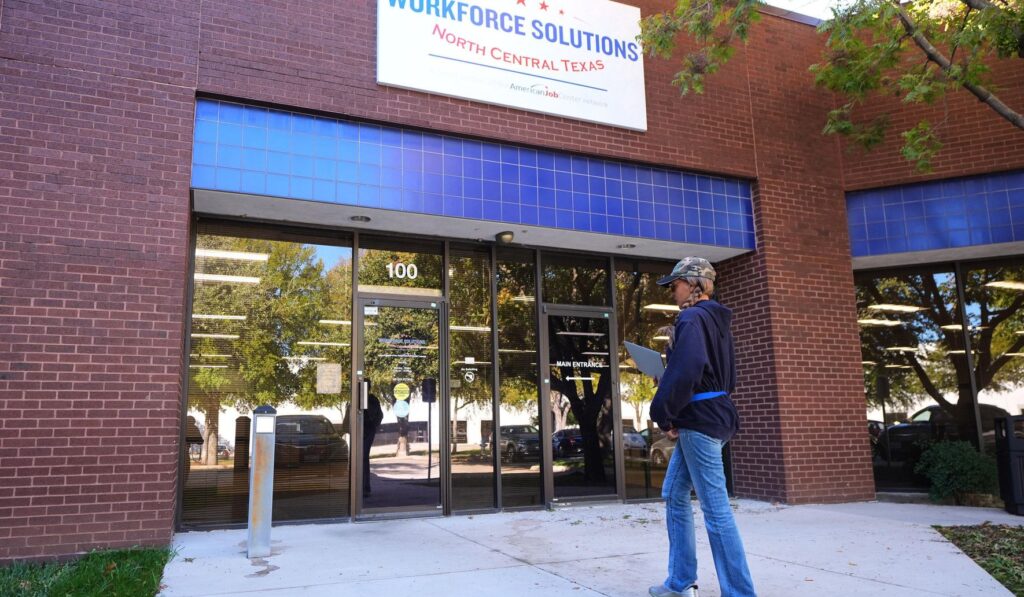The shutdown has left ordinary families scrambling while Washington stalls, and one clear example is Imelda Avila-Thomas, who, after more than two weeks of shutdown, still has no approval for unemployment compensation to pay for food and her mortgage. This article looks at the human cost of stalled benefits, the bureaucratic slowdowns that make simple claims linger, and what pragmatic fixes could protect people who depend on timely relief. The goal is a direct account that keeps the issue centered on affected families, debt pressures, and common-sense solutions favoring efficient government and clear priorities.
For more than two weeks now during the government shutdown, Imelda Avila-Thomas has been trying in vain to get approved for unemployment compensation to help cover essentials such as food and mortgage. Her story is not unique; it mirrors many households that wake up each day unsure how bills will be met while checks, systems, and approvals are stalled. This kind of uncertainty chips away at stability and forces people to choose between necessities that no one should have to choose between.
The shutdown puts frontline workers, contractors, and ordinary claimants in a bad spot because the system handling benefits is not designed to weather prolonged pauses in funding. Paperwork piles up, phone lines flood, and automated systems fall behind, turning straightforward claims into multiweek ordeals. That inefficiency hits people with the least buffer first — renters, single parents, and homeowners on tight margins.
Republican lawmakers often argue that limited, accountable government is preferable, and that principle should guide how benefits are administered during a shutdown. Practically, that means keeping essential processing functions funded or under emergency authority so benefits flow without politics getting in the way. Citizens should not be collateral damage while Congress uses funding as leverage.
There are simple administrative changes that would reduce the human toll without expanding government into new programs, such as prioritizing unemployment adjudications and maintaining call centers, even on limited funding. Triage-style protocols can keep eligible claims moving while auditors and oversight teams handle edge cases after the immediate crisis. Those are not ideological giveaways; they are basic public service priorities aligned with conservative calls for efficient government.
Local offices are where the fight plays out: staff who want to approve valid claims are forced to hold back for lack of authorization or resources, and claimants like Imelda are left waiting on hold for answers about mortgage payments and groceries. The personal stories show the arithmetic of shutdowns — a few missing paychecks can spiral into late fees, foreclosures, and long-term credit damage. Lawmakers who profess fiscal responsibility should also show responsibility in how they handle human emergencies caused by gridlock.
Families coping through a shutdown deserve transparent timelines and clear criteria for when claims will be processed, not political gamesmanship. Officials can publish daily processing metrics, assign emergency liaisons, and allow temporary measures that preserve oversight while ensuring relief arrives. These steps protect taxpayers by ensuring funds already allocated reach the people they were meant to serve, rather than creating backlogs that require more costly fixes later.
In the meantime, local charities and state programs try to fill gaps, but their resources are limited and inconsistent across regions, leaving some communities better covered than others. That patchwork response underscores why federal processes need to be resilient: people should not suffer because geography or local budgets vary. Republicans who promote strong local institutions should also push for federal continuity when basic safety nets are at stake.
Imelda’s case highlights the real-world consequences of a stalled government: mounting bills, sleepless nights, and the stress of an unresolved claim. Policymakers on both sides can and should agree on narrow steps to keep unemployment systems functioning during short-term budget fights, protecting families without changing the underlying balance of power. Practical fixes that restore timely benefit flow are consistent with conservative calls for competent, limited government that actually works for citizens.



